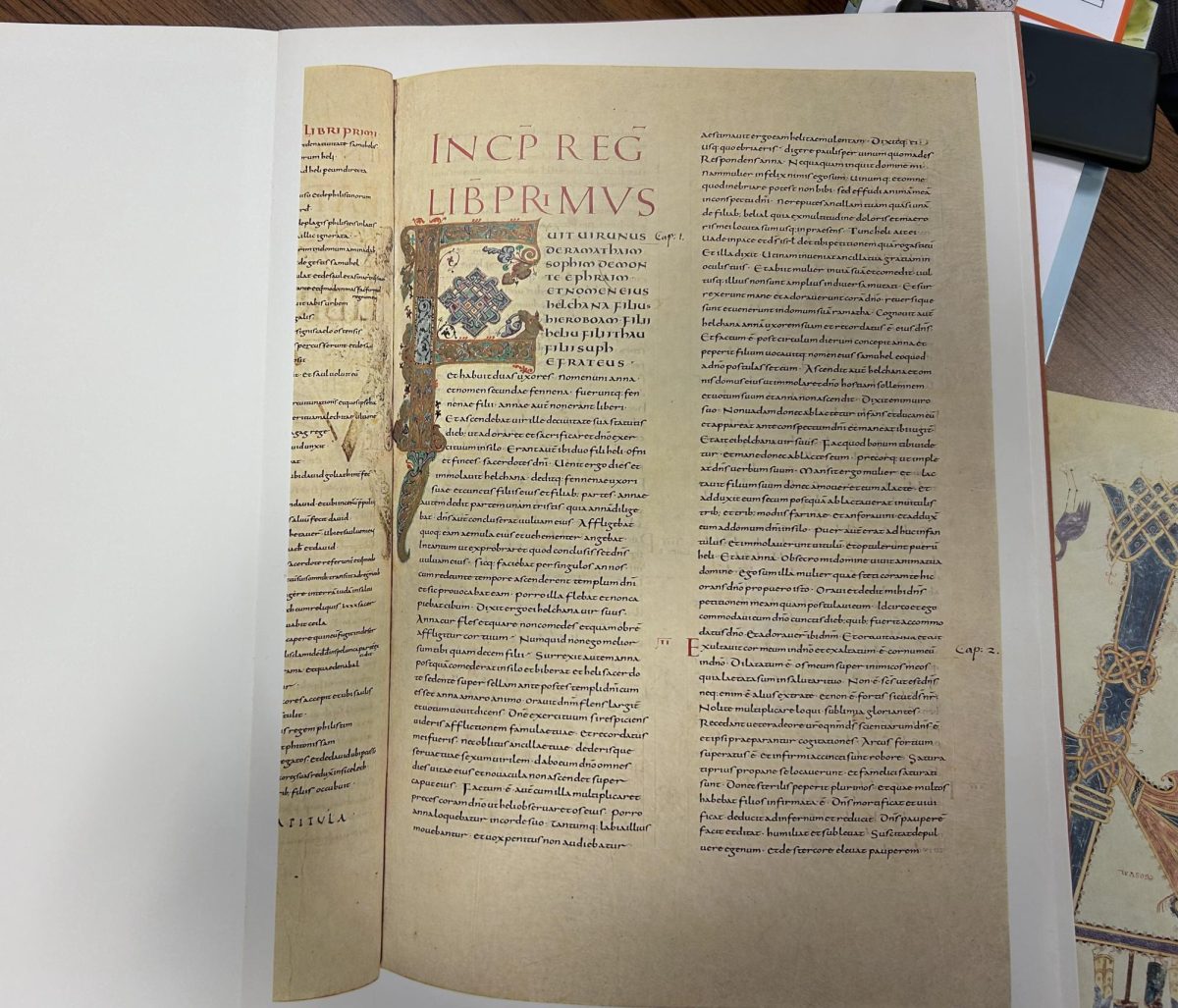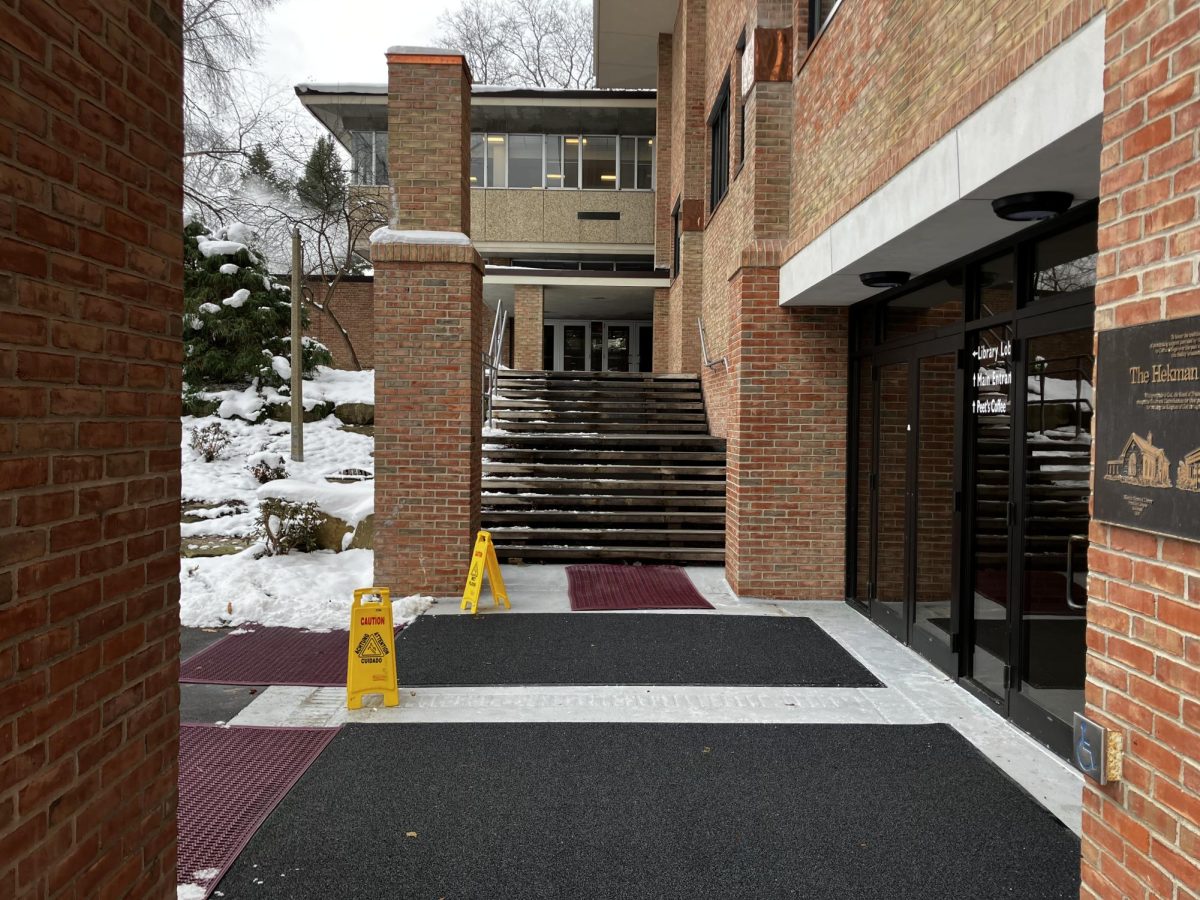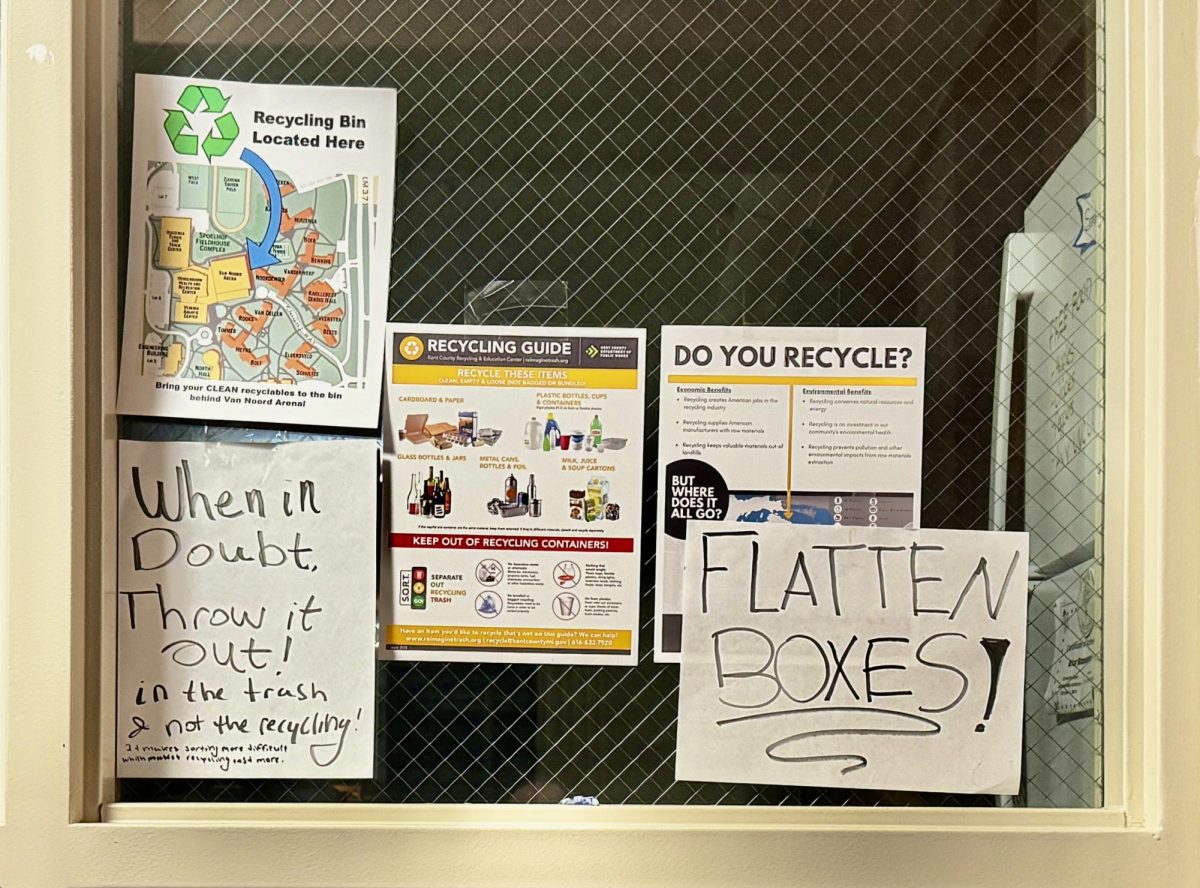Last week, I learned that my spring Spanish elective, Hispanic Culture in the U.S., was canceled. Only eight students enrolled, and according to the Spanish department’s email to those eight students, the administration requires ten to run the class. The department requested an exemption, which was denied. By itself, my Spanish class being canceled would be unfortunate, but not the end of the world. However, my roommate is currently enrolled in an elective math class which is even smaller, with only five students. So I’m confused: Why is there a larger enrollment requirement for language classes?
Canceling this class hurts many students. Half of those enrolled were seniors and cannot take it later. The course looks at “the experience of Hispanic people from different countries” living in the U.S., a topic that has received minimal attention in other courses. It also fulfills the Diversity and Difference Core tag. This change is particularly frustrating for me personally. With decreasing course offerings, this was the best way for me to get the last three credits needed for my Spanish major. As a prehealth student, Spanish will be invaluable to my career, helping me communicate with Spanish-speaking patients and increasing my employability. My Spanish abilities are already useful in my job as a patient care tech in a hospital setting, where I routinely speak with patients. The workaround to fulfill these final credits requires retaking a capstone on a new topic, meaning redoing the capstone requirements, including writing a second capstone paper. Ironically, the only reason I need these credits, despite a semester abroad, AP credits, and many other Spanish courses, is because of the two-four credit switch.
This problem extends beyond the Spanish department: this is happening to languages overall. Four years ago, according to the 2020 course catalog, Calvin still offered majors in Chinese, Chinese Education, Dutch, German, and German Education, as well as five majors and tracks in Spanish and Spanish education, with a total of sixteen language majors and tracks. The catalog for 2024 lists five: Spanish, Spanish Education, French, French Education, and Netherlandic Studies. There were also eleven minors, compared to the paltry three currently. Now, if the language that interests you isn’t Spanish, French, or German, the most you can do is take an introductory class or two, assuming it fits your schedule. According to Workday’s course data, in Fall 2020, 38 language classes were offered (excluding independent studies), including a two-semester sequence of upper-level Chinese Readings on Society and Culture, an upper-level Readings in Greek course, and an intermediate course on Latin Prose. This fall, there are 21 classes, and most are 100- or 200-level.
Meanwhile, student interest in Spanish is growing. The department added several sections of SPAN 101 to accommodate increasing demand, and the number of dual enrollment students taking classes in the department has grown so much that entire sections of upper level classes are reserved for them. Why not harness this growth to present a wider variety of content? For example, from asking several of my friends and classmates, there are prehealth students who would be interested in a medical Spanish course. Instead, the administration has forced the language department time and time again to decrease their offerings counter to this increase in students. Meanwhile, professors are being discouraged — or outright forbidden — from offering independent studies, eliminating that work-around for students struggling to obtain credits they need for graduation. This inflexibility only exacerbates the problem, which is due at least in part to decisions the administration made in the first place, despite students’ protests: the two-four credit switch, change to core, and the number of required core classes. Instead of the rich offerings that the course catalog claims, now only one upper level class is offered in German and French each semester. If it doesn’t fit with your schedule. . . good luck.
In a recent Chimes article about budget cuts at Calvin, Provost Toly stated “sometimes we have to add things, . . . subtract things, and reimagine them” and not “every program” can be “perpetually supported.” I do not disagree, but that is distinctly different from cutting classes for which there is student demand, which harms the student experience. Languages, along with other humanities departments subject to cuts in the past few years, are an essential part of a liberal arts education. Even the administration seems to agree with this, as they include it as a graduation requirement. At the top of the website, Calvin bills itself as a “Christian liberal arts university . . . known for academic excellence.” It might be more accurate to add a footnote: They used to be.









Jonas • Dec 2, 2024 at 11:41 pm
Appreciate this post. I’m a Calvin alum, double major in German and philosophy, who has recently completed a PhD in German. I’ve written on behalf of the language departments before. The larger problem is not, as Junius suggests, realism. It is a fundamental devaluation of what makes a liberal arts education. Business and football are not core components of the liberal arts. They may increase enrollment but the cost is a dilution of the central components of a liberal arts education, something Calvin purports to still offer. And the problems go back a decade or more.
This problem is not unique to Calvin. Nationwide the humanities are suffering. But it is particularly painful to watch Calvin become an indistinct institution.
While I hope Calvin can some day salvage what it has willfully chosen to lose, I fear the university will become one more bland, generic Christian college among many, rather than a unique, distinctly Reformed, and liberal arts institution.
Junius -- Writer • Dec 14, 2024 at 3:48 pm
I appreciate this — it reflects a fundamental misunderstanding of what I am saying, and I am certainly glad for the opportunity to correct it. Jonas pointed out that the invest to grow policy is, literally, a dilution of the central components of a liberal arts education. Nobody would deny that, certainly not myself. However, Jonas and I differ at this key point: Jonas assumes that the dilution is permanent, whereas I know that it is not.
If Calvin University permanently divested from the humanities so they could put that money towards athletics, that would be one thing: but that is actually not the case. Calvin must take a temporary hit in some areas so that they can grow in others later. You can actually see this in the Anolis Sagrei, perhaps better recognized as the “Brown Anole” lizard, common to Florida. When a predator catches the tail of the Brown Anole, the lizard is capable of shedding it so that they can continue running and ensure their survival. The important thing here is — they can grow it back later.
Calvin must shed some of their “tail” in the form of certain humanities classes in order to ensure the future survival of the institution and those humanities classes, with the intent to grow them back later (as shown with the theater minor). This is not unique in any sense of the word. In fact, the entire economic concept of this is called “tradeoffs” (you have to give up something to get something).
If you wonder which of us is right — Jonas/Annika or Junius — look no further to basic economics and the statements/actual actions of the institution and you’ll see a clear answer in the “invest to grow” strategy, which some seem to so profoundly misunderstand.
Jonas • Dec 16, 2024 at 3:36 pm
Hi Junius,
I do understand the strategy. And I do not misunderstand your larger point. In fact, we share a recognition of the basic facts that Calvin intends to invest to grow. I am simply skeptical that Calvin will reinvest in the humanities down the line. As I noted, the tradeoff logic is not unique to Calvin. It is fairly widespread across universities in the US. But I have yet to see a university that substantially trimmed or removed their humanities offerings for financial reasons and subsequently brought them back. Even programs like West Virginia’s language department, which were profitable (even the external consulting company who suggested the cuts acknowledged this), have been cut.
I am happy, and certainly hope, to be wrong. I want Calvin to reinvest and rebuild these programs long-term. I want to eat crow on this. I simply fear the trend suggests otherwise. But I do follow the updates as closely as I can because I do care and I want to remain clued in
Junius -- Writer • Nov 26, 2024 at 1:15 pm
This article is a good, well-written article *if you only care about the short-term state of Calvin.* However, the future of Calvin is completely ignored in this article in lieu of comparisons between math and language classes and some subtle shade thrown at the patently beneficial 2/4 credit transition. What this article gives you is one side of the story – the side of a student who is frustrated with their schedule – but it entirely ignores the strategy which Dr. Sarah Visser describes as: “invest to grow.”
I hate to break this news to the author, though it seems as though they were unaware – Every academic department has been recently directed to make budget cuts of 10% due to Calvin’s financial position. This means that Calvin has to choose cuts to make, and what would you have them do? Cut the new athletics programs in favor of bringing back all the language courses? This is just not reality. The reality is, athletics programs meaningfully increase enrollment. The Business programs meaningfully increase enrollment. Having new, nice buildings meaningfully increases enrollment. Having 16 language tracks instead of five does not meaningfully increase enrollment.
This article ignores the future of this university, merely making sweeping generalizations based on the current schedule concerns of one student. If the author would truly like to see World Languages thrive here, they’d support each and every enrollment initiative – including athletics. The money brought in from those programs will eventually be used to bring back programs all across the University, which we have already seen vis-à-vis the Theater Minor. In a Chimes article about the Theater Minor on January 22, 2024, Provost Noah Toly was quoted saying, “What we can’t do is make massive investments in areas that we love, even though we love them. We can’t make massive investments in areas that we love that just aren’t going to deliver more students for us at this point.” Cuts are not a surprise, and nobody should treat them as one. Rather, they are simply common sense, and in the best interests of Calvin and its students, faculty, and staff. Sometimes, you need to cut something to ensure the survival of that very thing.
I will leave you with this: the complaints of a few are often easier to hear than the reality of the institution. Use discretion when discerning “facts.” My hope is that next time, people will consider the future of Calvin, as well as the facts at hand, before making unsubstantiated claims about various decisions which have been made.